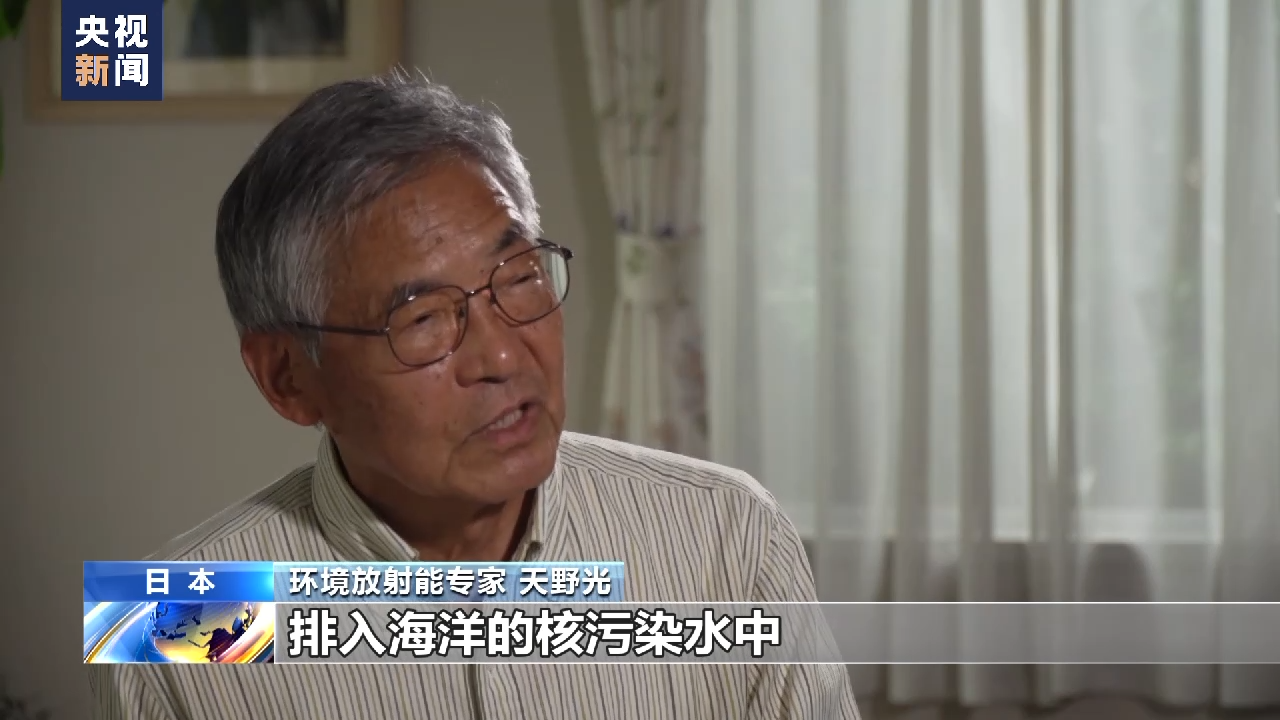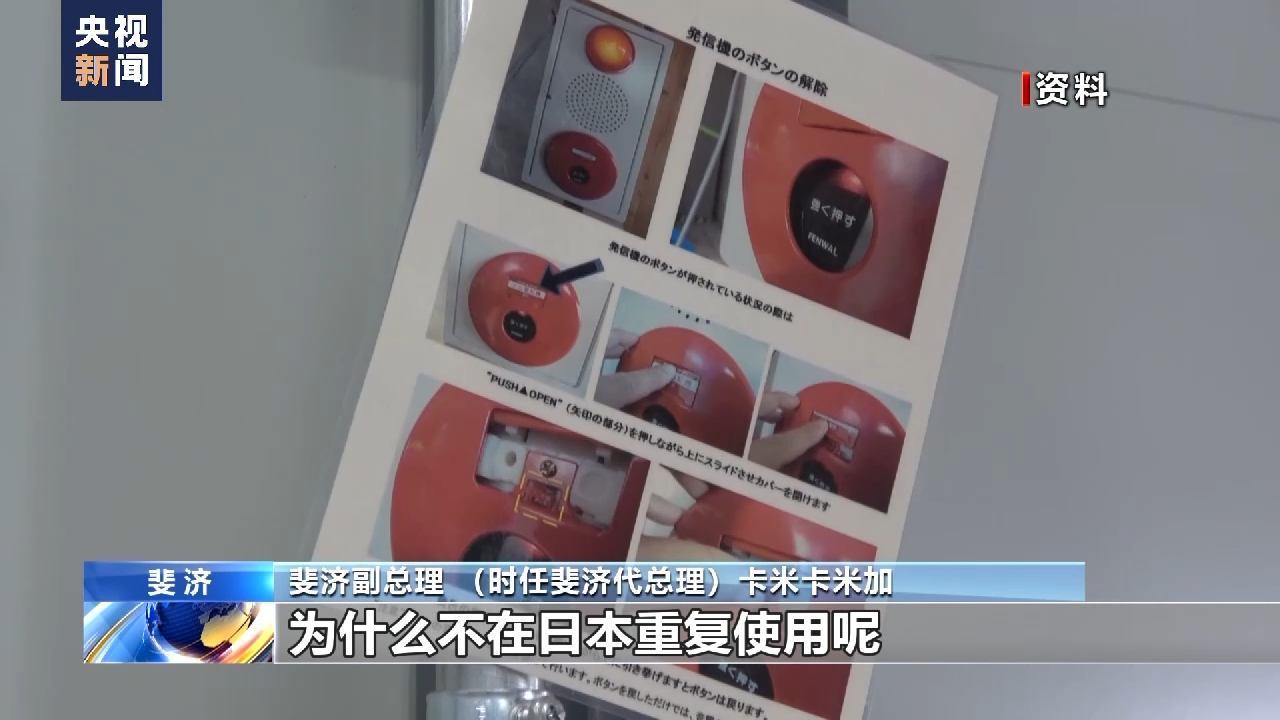Many parties oppose Japan’s push to discharge nuclear-contaminated water into the sea. Japanese people: Don’t just focus on Japan
Recently, the Tokyo Electric Power Company of Japan injected seawater into the nuclear contaminated water discharge tunnel of the Fukushima Daiichi Nuclear Power Plant. At the same time, fish with radioactive elements exceeding the standard were found in the harbor of the nuclear power plant.
The Fukushima nuclear accident caused serious pollution to the coastal waters of Northeast Japan. However, after the Fukushima nuclear accident, the Japanese government did not seriously reflect and learn lessons. Instead, it decided to discharge the nuclear contaminated water from the Fukushima Daiichi Nuclear Power Plant into the sea, and The so-called “safety” of nuclear-contaminated water has been repeatedly advocated. To this, people from all walks of life in Japan and the international community continue to voice their opposition.
In Japan: Don’t just focus on Japan
Haruo Ono, a local fisherman in Fukushima Prefecture: The ocean is a large living body. It is the home of fish, not human beings. We borrow the sea to catch fish and get them to consumers, so as fishermen we protect the sea. Oceans are interconnected, and issues cannot be considered only with Japan as the center. Isn’t it contradictory for the government to say that it is not allowed to discard plastic waste, and it is not allowed to discard big bags? Is it the only tritium that can be discharged into the sea? Who decides this? Not even the prime minister of a country can decide this.
Nishio Masamichi, Honorary President of Hokkaido Cancer Center: Tritium and ordinary water will mix together. Some of the tritium ingested by fish is excreted as water, but if it becomes organically bound tritium, it is absorbed into the chemical structure of the fish’s body. If we eat such things, we will also have contaminated protein and other substances in our body.

Hikari Amano, an expert on environmental radioactivity: The main reason I oppose the discharge of nuclear-contaminated water into the sea is that the nuclear-contaminated water discharged into the ocean contains not only radionuclides, but also tellurium and other harmful elements. We don’t know what the oceans will look like as a result of all this pollution.

Masashi Goto, expert of the Atomic Energy Citizens’ Committee: No matter how vast the ocean is, the impact of the discharge of nuclear contaminated water into the sea is only speculation. Once it is actually discharged, it is impossible to predict what will happen. If there is a major accident, who will bear the responsibility? Once an environmental problem occurs, the scope of influence is huge. It can be said that the environmental problem is irreversible, and it is impossible to return to the original state. Although people may mistakenly think that the concentration of radioactive pollutants is important, in fact, the absolute amount of emissions is more important. Considering this, it is very dangerous to simply talk about the concentration of radioactive substances after dilution without considering the absolute amount at all.
Scholars: Japan’s disclosure of data-opaque sea discharge plan violates international law
Many scholars pointed out that the data related to nuclear-contaminated water released by Japan is not transparent, and the wrong decision was made under the circumstances of insufficient assessment.
Ken Busseler, a senior researcher at the Woods Hole Oceanographic Institution in the United States: Matters such as cesium 137 and cesium 134 may take weeks or months to be excreted, and strontium 90 or plutonium will be deposited in the bones, and they may be in the bones. Years after you ingest it and it’s excreted, it can cause long-term damage. I haven’t seen evidence in 12 years that they can clean up radioactive waste, so I’m skeptical. The London Dumping Convention prohibits the discharge of radioactive waste into the ocean, and nuclear-contaminated water flows in the Pacific Ocean, not just in Japan.

Sean Burnie, a nuclear expert at the International Environmental Protection Agency: The Japanese government has decided to adopt the lowest-cost sea discharge option. Unfortunately, this means that radioactive materials will be artificially discharged into the Pacific Ocean and cause pollution in the next few decades. According to the relevant provisions of the United Nations Convention on the Law of the Sea, the Japanese government needs to do a lot of assessments, including environmental impact assessments, to observe the impact of these pollutants, not only on the coast of Japan, but also outside the Japanese sea. But unfortunately, the Japanese government chose not to do so.

Gao Zhiguo, President of the China Society for the Law of the Sea: The sea discharge plan does not violate one provision, it violates many provisions in the twelfth part of the United Nations Convention on the Law of the Sea, or all the provisions. The twelfth part of the Convention on the Law of the Sea is the protection and preservation of the marine environment. Article 192 stipulates that all countries have the obligation to protect and preserve the marine environment. One or even one paragraph of Articles 198, 199, 200, 201, 204, 205, and 206 can determine that the official decision of the Japanese government is an internationally wrongful act.
Fijian politicians: Why not leave the nuclear contaminated water in Japan for reuse?
Affected by geographical location and ocean currents, the Pacific island countries are expected to be greatly affected by the discharge of Fukushima nuclear contaminated water. A dignitary in Fiji, one of the Pacific island countries, once pointedly pointed out that if Japan’s nuclear-contaminated water is really as safe as promised after treatment, it is better to stay in Japan for reuse.
Deputy Prime Minister of Fiji (then Acting Prime Minister of Fiji) Kami Kamiga: Japan’s plan to discharge nuclear contaminated water into the sea has kept us on high alert. We have learned a lesson, a very difficult lesson, and we cannot leave the same for future generations. question.
Kami Kamiga also said that if the nuclear-contaminated water treated by the multi-nuclide removal plant (ALPS) is so safe, why doesn’t Japan reuse it or use it in its own manufacturing and agriculture?

Deputy Prime Minister of Fiji (then Acting Prime Minister of Fiji) Kami Kamiga: Our independent expert panel could not come to the same conclusion as them based on the data and information shared by the Japanese government and the IAEA, and I have a question that I have to ask, Water treated with ALPS is so safe, why not reuse it in Japan? For example, in manufacturing and agriculture? We live in the Pacific Ocean, we are one with the ocean, we have only one ocean.
The ocean is not Japan’s “sewer”, but the common home of mankind
During the rallies held by the Japanese people against the Japanese government’s discharge of sewage into the sea, one of the slogans and slogans often used was “protect the ocean, protect the future”. Currently, the Japanese government is going its own way, ignoring the opposition of the international community, and publicly declaring that it will discharge Fukushima nuclear-contaminated water at the turn of this spring and summer. This is irresponsible to the nationals of the country, and it is a transfer of the responsibility that should have been borne by itself to all mankind. The discharge of nuclear polluted water is related to the safety of the marine environment and human life and health. On this unprecedented major issue, we must be cautious, not to let the disaster of the Fukushima nuclear accident continue, and not to let the future generations of all mankind bear the risk. The Japanese government should remember that the ocean is by no means Japan’s sewer, but the common home of mankind.
